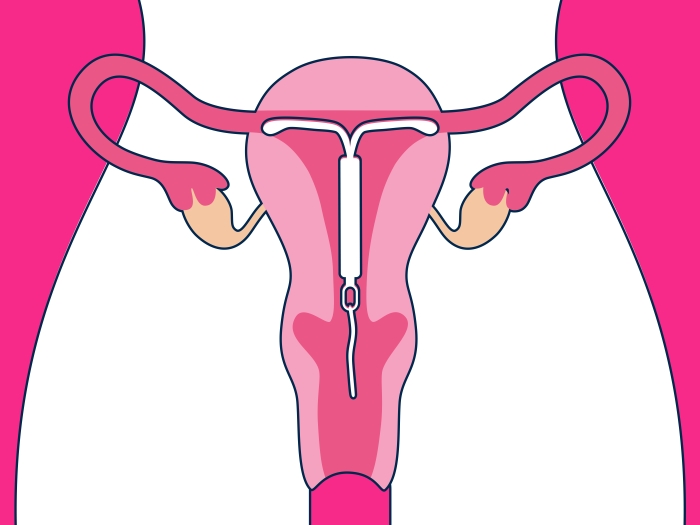They experience higher rates of sexual harassment, cyber incivility and negative workplace climate, which impacts mental health
10:56 AM
Author |

A study finds that women, racial and ethnic minorities, and individuals identifying as lesbian, gay, bisexual, transgender and queer are disproportionately affected by workplace mistreatment in academic medicine, and this mistreatment negatively impacts their mental health.
The study, published in the Journal of the American Medical Association looked specifically at three aspects of workplace mistreatment in academic medicine – sexual harassment, cyber incivility and negative workplace climate – and whether they differ by gender, race and ethnicity, and LGBTQ+ status.
Additionally, the study examined whether these factors are associated with faculty mental health.
Researchers surveyed a total of 830 faculty members who received National Institutes of Health career development awards in 2006 - 2009 and remained in academia. Experiences were compared by gender, race and ethnicity, and LGBTQ+ status.
The study found that high rates of sexual harassment, cyber incivility and negative workplace climate disproportionately target marginalized individuals, including women, those whose race or ethnicity has been underrepresented in medicine, and members of the LGBTQ+ community, and these experiences were associated with poorer mental health.
“Understanding the nature and frequency of experiences with harassment is the essential first step to inform a broader cultural transformation process,” said Reshma Jagsi, M.D., D.Phil., previously a professor of radiation oncology at Michigan Medicine, where the research was conducted, and now chair of the Department of Radiation Oncology at Emory University School of Medicine.
“Cultural transformation of the medical profession is critical to foster civil work environments within which the best and brightest members of society can thrive in their pursuit of the admirable mission to promote human health through care delivery, research and education,” Jagsi said.
Key findings show that women were more likely than men to experience sexual harassment, including gender harassment and unwanted sexual attention.
Of the women surveyed, 71.9% reported that they experienced gender harassment during the past two years, compared to 44.9% of men. Women rated both the general and diversity workplace climate as worse than men and reported certain forms of incivility, sexist comments and sexual harassment when using social media professionally.
In addition, mental health ratings were lower for women, and this difference appeared partly explained by differences in culture experiences.
“The findings suggest that even while women’s representation in the medical field has improved, their experiences reflect marginalization,” said Jagsi. “These stressors lead to a lack of psychological safety, communicate unbelonging and affect mental health, compromising the vitality of these critical contingents of the professional workforce.”
Of the individuals who identify as LGBTQ+, 13% reported experiencing sexual harassment while using social media professionally vs. 2.5% of those who identify as cisgender or heterosexual.
In addition, respondents with races and ethnicities underrepresented in medicine rated the diversity climate more negatively than white respondents and reported certain forms of cyber incivility and racist comments when using social media professionally.
Together, these results suggest an ongoing need for specific interventions to transform culture in academic medicine.
The authors of the study stated in JAMA: “The highest rates of sexual harassment occur in organizations that are perceived to tolerate such behavior. Organizations that proactively develop, disseminate and enforce sexual harassment policies are least likely to harbor such behaviors.
“These efforts must go beyond formalistic and symbolic legal compliance to engage workers from the ground up and leaders from the top down to ensure meaningful culture change. Opportunities to share organizational wins and best practices abound, including the NASEM’s Action Collaborative, the Association of American Medical Colleges’ Group on Women in Medicine and Sciences, and myriad others in professional specialty societies. The findings from the current study should motivate increased attention and resources toward these efforts.”
This study was supported by an R01 grant (grant 5R01GM139842-03) from the National Institutes of Health.
Additional authors of the study include the following researchers from the University of Michigan: Kent Griffith, M.S., M.P.H., Chris Krenz, Rochelle D. Jones, M.S., Christina Cutter, M.D., M.Sc., M.S., Eva L. Feldman, M.D., Ph.D., Clare Jacobson, M.D., Eve Kerr, M.D., M.P.H., Kelly Paradis, Ph.D., Kanakadurga Singer, M.D., M.A., Abby Stewart, Ph.D., Dana Telem, M.D., and Isis Settles, Ph.D., as well as Nancy Spector, M.D., from the College of Medicine at Drexel University and Peter Ubel, M.D., Ph.D., from the Schools of Business and Medicine at Duke University.
Paper cited: “Workplace Harassment, Cyber Incivility, and Climate in Academic Medicine,” JAMA. DOI: 10.1001/jama.2023.7232

Explore a variety of health care news & stories by visiting the Health Lab home page for more articles.

Department of Communication at Michigan Medicine
Want top health & research news weekly? Sign up for Health Lab’s newsletters today!





